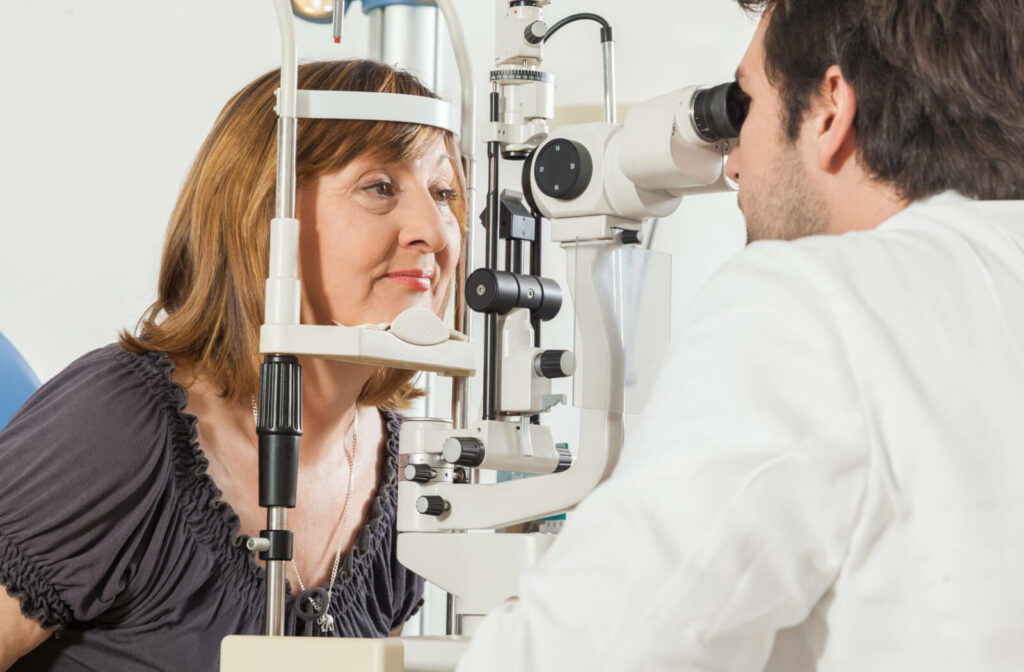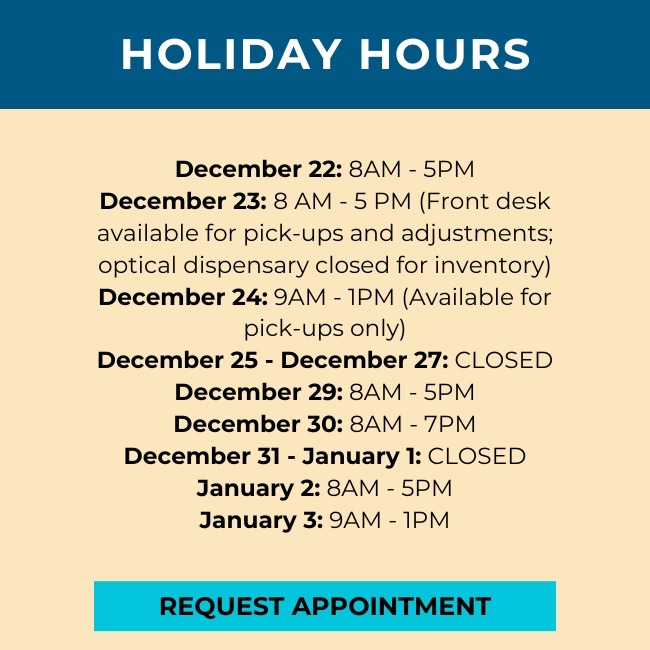Diabetic retinopathy is a condition that can loom over the life of someone with diabetes as a silent threat to vision and quality of life. It’s a leading cause of blindness in adults, and for people with diabetes, understanding and addressing this condition can be crucial.
Diabetic retinopathy occurs when high blood sugar levels cause damage to the blood vessels in the retina. These vessels can swell, leak, or even close off entirely. In some cases, abnormal new blood vessels can grow on the retina. Without intervention, this progression can lead to significant visual impairment, and without it, you could experience vision loss.
Diabetic retinopathy cannot be reversed, but it can be treated and managed. A combination of prevention, diabetes control, and early intervention can help protect the eye health and vision of people with diabetes. Living with diabetes requires vigilance, and protecting your vision is a vital part of that journey.
Understanding Diabetic Retinopathy
Diabetic retinopathy typically moves through stages, from mild nonproliferative retinopathy to more advanced proliferative retinopathy. The symptoms might not be noticeable at first but can progress to spots or dark strings floating in your vision (floaters), blurriness, fluctuating vision, dark or empty areas in your sight, and eventually, vision loss.
Diabetic retinopathy is a leading cause of blindness in Canada. Early detection and diabetes management can help prevent complications like vision loss.
Preventing Diabetic Retinopathy
Diabetic retinopathy can be prevented or delayed through early detection and proper management of diabetes. This includes:
- Regular Eye Exams: Annual dilated eye exams help detect signs of diabetic retinopathy at an early stage when it is more treatable.
- Control of Blood Sugar: Keeping blood sugar levels under control can help prevent damage to the blood vessels in the retina.
- Blood Pressure Management: High blood pressure can worsen diabetic retinopathy, so it can be vital to monitor and manage blood pressure levels.
- Healthy Lifestyle Choices: A healthy diet and regular exercise can improve overall health and reduce the risk of developing diabetes and complications from it.
Treatment Options for Diabetic Retinopathy
If diabetic retinopathy has already developed, there are several treatment options available, including laser treatment and injections.
Laser Treatment
This procedure uses a laser to seal off leaky blood vessels and shrink abnormal blood vessels. It may also be used to reduce swelling in the retina.
Vitrectomy
In severe cases of diabetic retinopathy, a surgical procedure called vitrectomy may be necessary. This involves removing fluid from inside the eye to repair damage and replacing it with another substance, such as gas, air, or saline solution. The new substance will eventually be replaced by fluid that your eye naturally creates.
Injections
Anti-VEGF (vascular endothelial growth factor) injections can also be used to treat diabetic retinopathy. These injections are meant to help prevent abnormal blood vessel growth in the eye.
Emerging Research
Ongoing research is being conducted to further expand the understanding of diabetic retinopathy and the options for treatment, such as injections with special molecules that may help prevent the complications of diabetic retinopathy.
Currently, prevention through lifestyle adjustments remains key for helping those with diabetes avoid the complications of diabetic retinopathy. Getting routine diabetic eye exams also remains crucial for detecting diabetic retinopathy and other diabetes complications early.
The Role of Diet & Exercise
Beyond medical treatment, nutrition and physical activity can play a pivotal role in preventing diabetic retinopathy and diabetes. Nutrients like Vitamin A, C, E, and zinc are essential for eye health, and focusing on eating a balanced diet with foods that contain these nutrients can also help support your overall health to prevent diabetes complications.
The following foods are rich in nutrients beneficial for your overall health and eye health:
- Beans
- Dark green, leafy vegetables
- Citrus fruits
- Berries
- Tomatoes
- Salmon, tuna, and other fish high in omega-3 fatty acids
- Nuts
- Milk
- Yogurt
Routine Eye Care Is Critical for Those with Diabetes
For those affected by diabetes, it’s important to consult healthcare providers for individualized treatment plans—including optometrists. Preventing diabetic retinopathy can be a dance between management and anticipation, and keeping a close eye on both blood sugar levels and your eyes is essential for protecting your long-term eye health.
Reach out to us at Stoney Creek Optometry to schedule a diabetic eye exam and learn more about your risk for diabetic retinopathy—as well as other potential complications of diabetes. We’re here to help you fully understand your eyes. Book an appointment today.






















